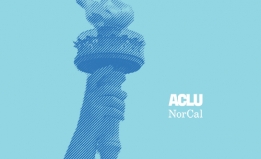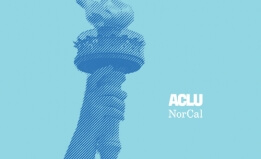
Blog
We can be pretty sure that each new day will bring two things: new threats to our civil liberties, and new stories of people standing up for their rights and winning. Behind every court ruling is a person. Behind every landmark law is a movement. Read the stories and hear the voices that ground our work.
California's Sex Education Program: Ongoing Struggles Behind the Success Story
Jun 02, 2010
California's sex education policies are the envy of most other states. California is alone in having never accepted Title V federal abstinence-only-until-marriage funds, and state laws require that sex education in schools and state-funded community programs be comprehensive and bias-free. California's laws have served as models for other states and the federal Responsible Education About Life (RE...
Read More
Oakland Gang Injunction is a False Solution
May 26, 2010
The Oakland City Attorney's proposed gang injunction is a misguided tactic for curbing violence, and a misappropriation of scarce public safety dollars.During a recent visit to a youth center in Oakland, U.S. Attorney General Eric Holder said, "We don't want to get tough on crime, we want to get smart on crime."Being smart on crime requires winning strategies to enforce existing laws today and inv...
Read More
Facebook Addresses Several Privacy Problems
May 26, 2010
Facebook has come under withering fire recently for its recent string of privacy-unfriendly practices, from its "privacy transition" that took away privacy controls to "instant personalization" that instantly shares personal information with third party pages without the user's consent.These failings led over 80,000 people to sign ACLU petitions demanding that Facebook give users control over all ...
Read More
We Don't Want Simpler Controls - We Simply Want Control
May 24, 2010
Facebook has been taking heat for its recent privacy-unfriendly practices, from the "privacy transition" that took away privacy controls to "instant personalization" that instantly shares personal information with third party pages without the user's consent. In response, Facebook CEO Mark Zuckerberg published an op-ed in the Washington Post today, claiming that Facebook has "heard the feedback" a...
Read More
Google Announces Encrypted Search
May 21, 2010
Google has just announced the release of "Encrypted Search," allowing search users to prevent third parties from intercepting and viewing their search terms or search results. Although limited right now, this is a positive step by Google and a good example of how companies can use technology to improve--rather than erode--the privacy of their users. (Encrypted Search will eventually be available a...
Read More
The Legacy of Harvey Milk - Take a Stand for LGBTQ Students' Rights
May 21, 2010
Rochelle Hamilton is an out lesbian high school student in Vallejo. For months, she faced harassment from her teachers because of her sexual orientation. She was even forced to attend a counseling group designed to discourage homosexuality. Robby M. faced years of harassment and bullying from his peers because of his sexual orientation. He and his mom pleaded for the school to intervene, but the s...
Read More
The Crisis in Fourth Amendment Jurisprudence
May 20, 2010
If you are interested in dotRights online privacy issues and are interested in a more detailed analysis of the Fourth Amendment and the state of privacy today, check out The Crisis in Fourth Amendment Jurisprudence, the new issue brief written by Jay Stanley, Senior Policy Analyst at the National ACLU Speech, Privacy and Technology Program.The issue brief delves into how rapid advancements in tech...
Read More
Group Will Join Lawsuit If North Carolina Department Of Revenue Keeps Up Demand For Private Information
May 20, 2010
Raliegh – The American Civil Liberties Union and the ACLU of North Carolina today sent a letter to North Carolina Secretary of Revenue Kenneth Lay reiterating concern over a recent request by the state Department of Revenue (NCDOR) for the private records of Amazon.com customers. The letter informs Lay that the ACLU will take legal action on behalf of North Carolina residents who are Amazon.com cu...
Read More
ACLU of PA Representing Anonymous Twitter Critics
May 20, 2010
Grand Jury Issued Subpoena To Twitter Demanding Twitter Users' IdentitiesHarrisburg – The ACLU of Pennsylvania announced today that it is representing two anonymous Twitter users who have criticized State Attorney General Tom Corbett on a social networking site. Corbett's office asked a grand jury to issue a subpoena earlier this month to Twitter demanding the identities of his critics."Any subpoe...
Read More
Digital Books: A New Chapter for Reader Privacy
May 20, 2010
What you choose to read says a lot about who you are, what you value, and what you believe. That is why you should be able to read about anything from politics to health without worrying that someone is looking over your shoulder. But, as books move into digital form, new reader privacy issues are emerging.Digital book services are capturing detailed information about readers including who they ar...
Read More
Run Privacy Upgrade- It's Time for Congress to Update ECPA
May 05, 2010
Today, the House Judiciary Subcommittee on the Constitution, Civil Rights, and Civil Liberties is holding its first hearing to discuss the woefully outdated Electronic Communications Privacy Act. (Did we mention that it was written in 1986?!)The Fourth Amendment of the Constitution was designed to protect the privacy of our personal information. Unfortunately, innovation has far outpaced electroni...
Read More
High School Essay Contest on Internet Privacy sponsored by ACLU-SCV
Apr 26, 2010
The ACLU of Northern California's Santa Clara Valley Chapter is holding an essay contest for high school students residing in or attending school in Campbell, Cupertino, Gilroy, Los Gatos, Milpitas, Monte Serano, Morgan Hill, San Jose, Santa Clara, Saratoga, or Sunnyvale.Find out more here. Please note, the deadline has been extended to May 15, 2010.You rely on the Internet to learn, share, shop, ...
Read More


